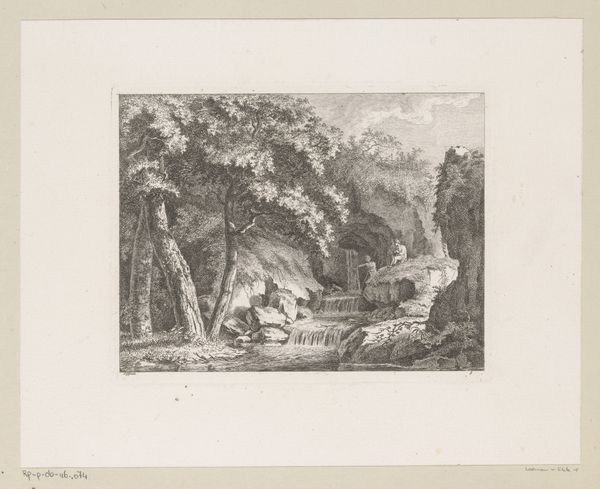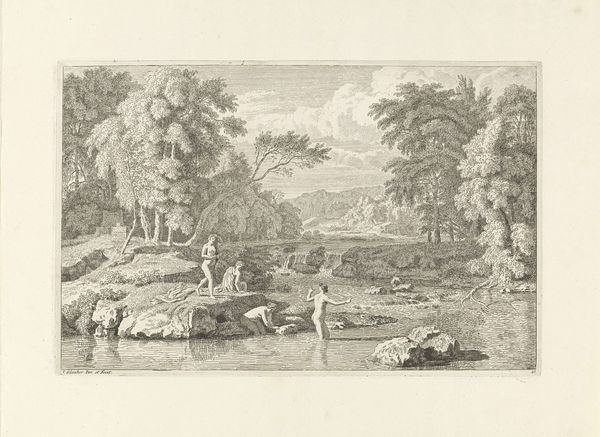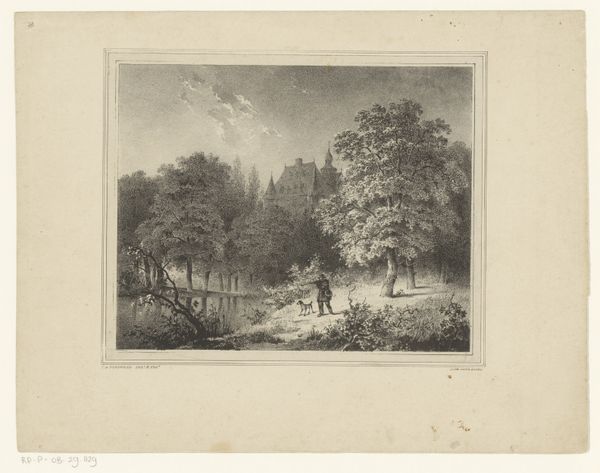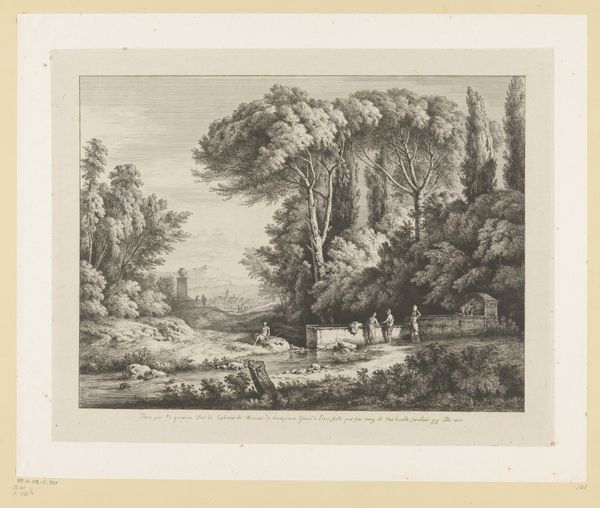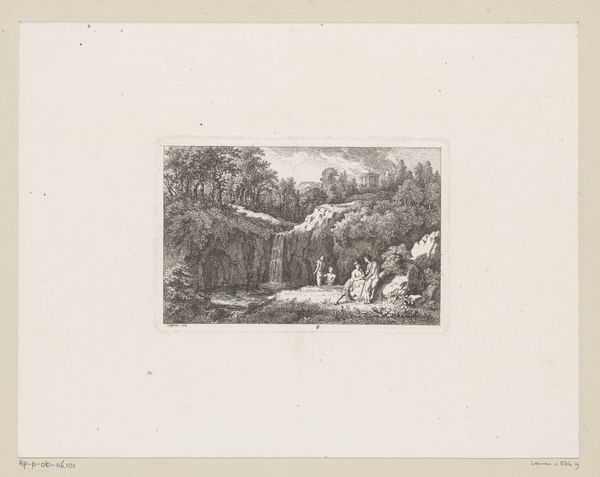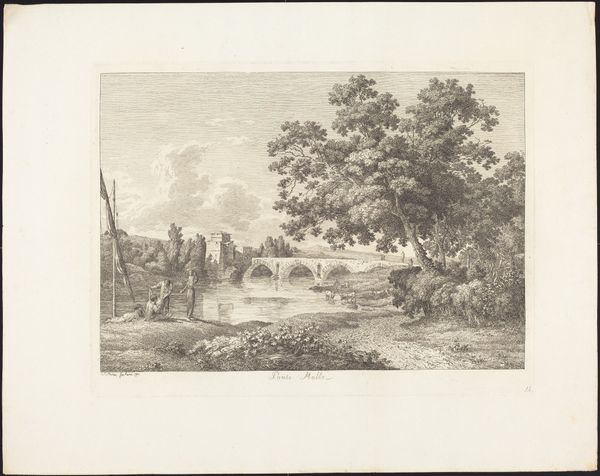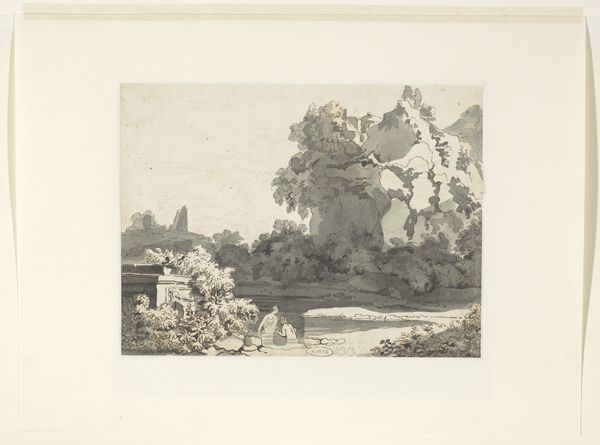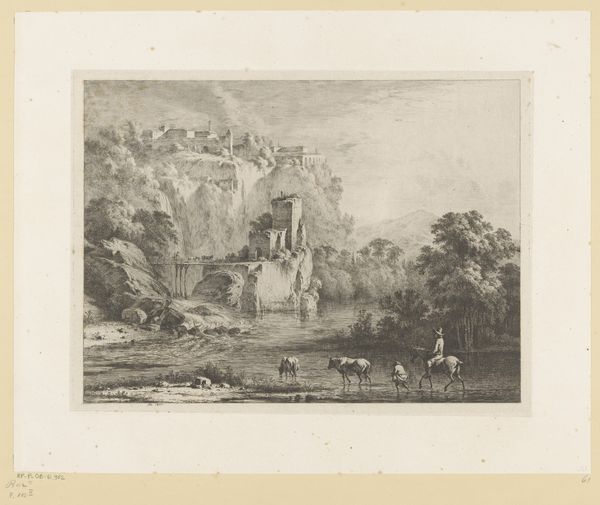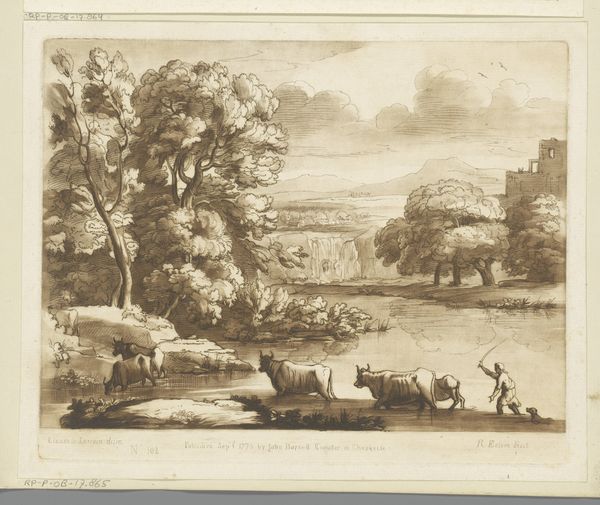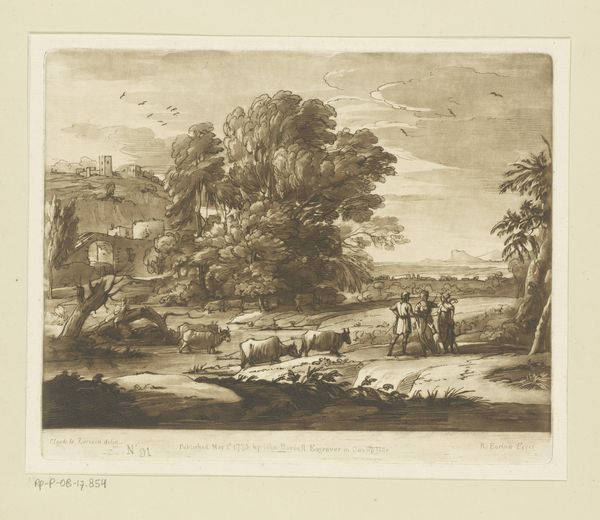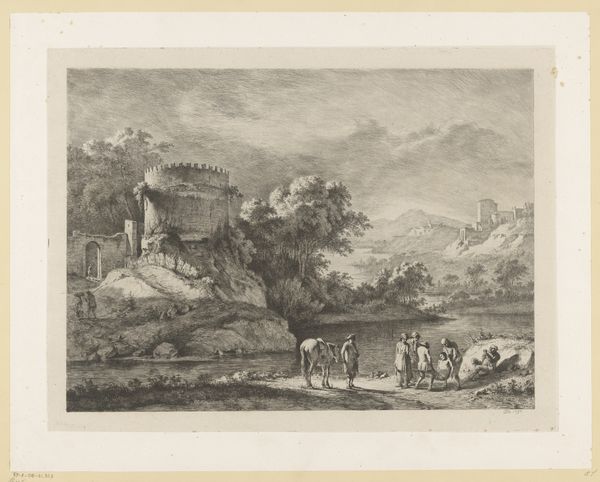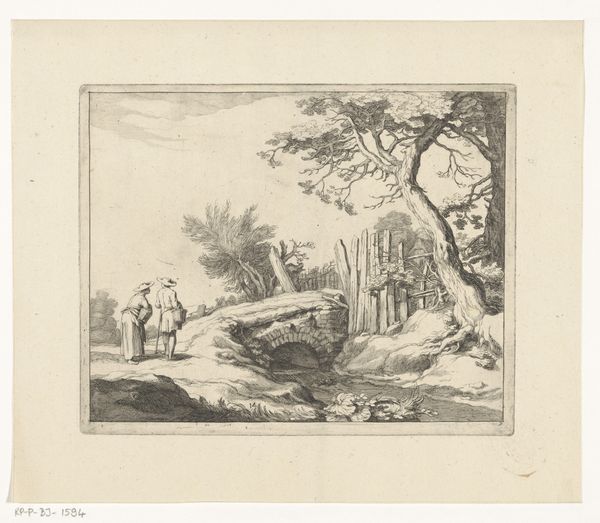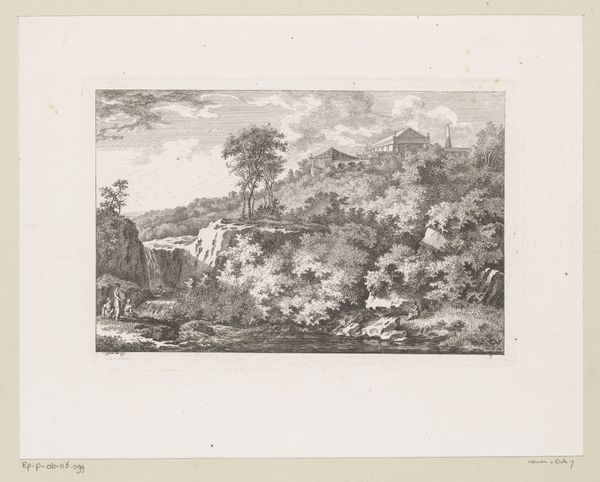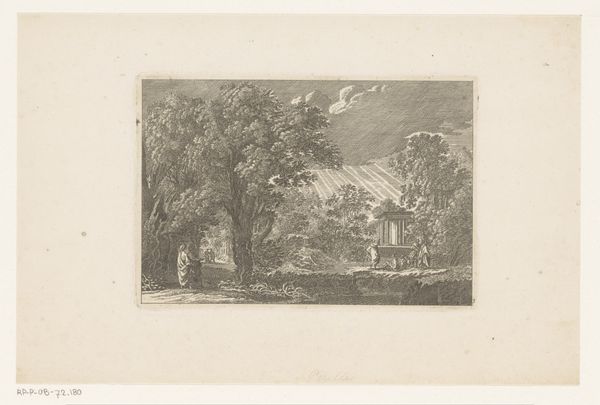
etching
#
neoclacissism
#
etching
#
landscape
#
15_18th-century
#
line
#
cityscape
#
genre-painting
#
realism
Dimensions: height 162 mm, width 216 mm
Copyright: Rijks Museum: Open Domain
Jean Jacques de Boissieu created this landscape with figures along the Ain River as an etching. It’s important to remember that the production of landscape imagery in 18th century France was closely linked to social class and to ideas about the relationship between humans and nature. The cultural elite often idealized the countryside as a space of leisure, and the figures in the foreground, perhaps enjoying a day of fishing, reflect this. The artist, however, was working during the Enlightenment, a period in which there was increasing attention to the real lives of ordinary people and a critical approach to social institutions. The buildings on the left, for example, suggest a working mill, bringing in an element of labor. To fully understand this image, we need to research the economic conditions of rural France at the time, including the relationship between landowners and peasants. Also, the Royal Academy played a role in defining the accepted subjects for art. By studying these factors, we can better understand the meaning of the work in its original context.
Comments
No comments
Be the first to comment and join the conversation on the ultimate creative platform.
